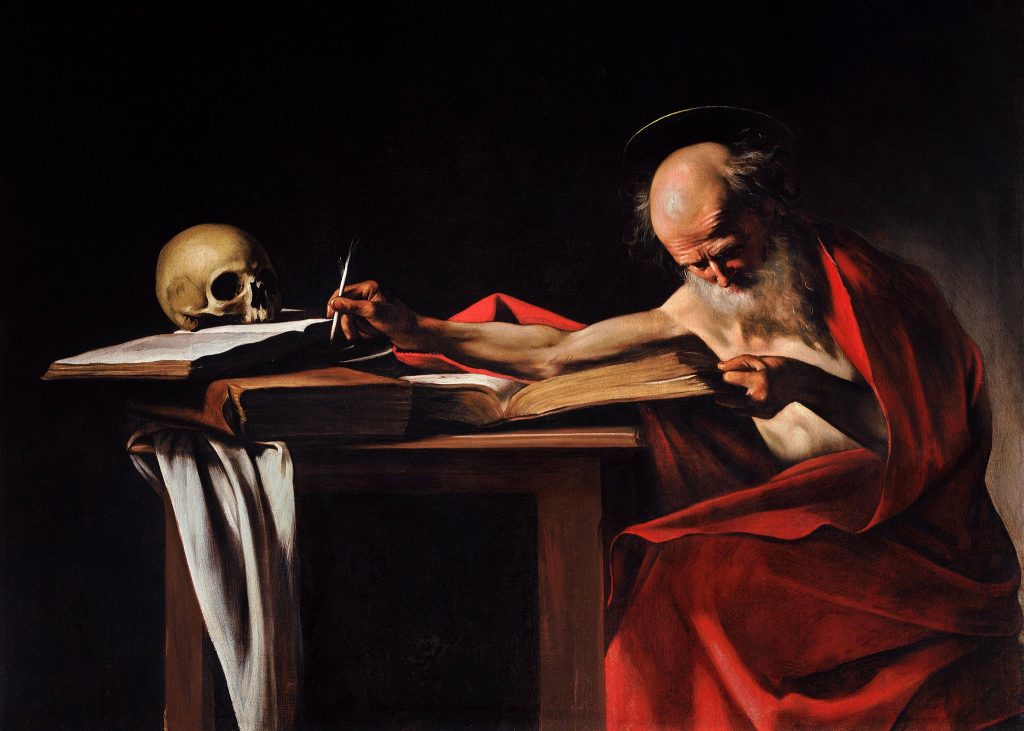St. Jerome was born around 340, as Eusebius Hieronymous Sophronius, in present-day Croatia. He received Christian instruction from his father and was sent to Rome to study rhetoric and classical literature. From an early age, Jerome was caught between two lifestyles, tempted by worldly pursuits, but drawn to a life of faith.
In 360, Jerome was baptized by Pope Liberius, and began traveling among the monastic and intellectual centers of the Christian empire. He studied theology in Trier, and worked closely with two other future saints, Chromatius and Heliodorous, both teachers of orthodox theology.
Jerome eventually sought a life like the first generation of desert fathers, and traveled to Syria. His letters detail the many trials and temptations he endured in his years as a desert hermit. After he was ordained by the bishop of Antioch, he studied in Constantinople and served Pope Damasus I in Rome.
Jerome learned Hebrew from a Christian monk who had converted from Judaism, and studied with Jewish rabbis, maintaining a connection between the Hebrew culture and the Greek and Latin-speaking Christianity. Pope Damasus commissioned the Vulgate from Jerome, and he spent 15 years translating the authoritative Latin version of the Bible.
After his harsh temperament and biting criticisms made him many enemies who forced him to leave Rome, Jerome chose to live a permanent life of solitude in Bethlehem from the mid-380s. He remained engaged in the Church’s struggles and controversies, and served as a spiritual father to a group of nuns who had become his disciples in Rome. Many monks and pilgrims came to his monastery seeking his wisdom.
St. Jerome died in his monastery at Bethlehem in 420.

